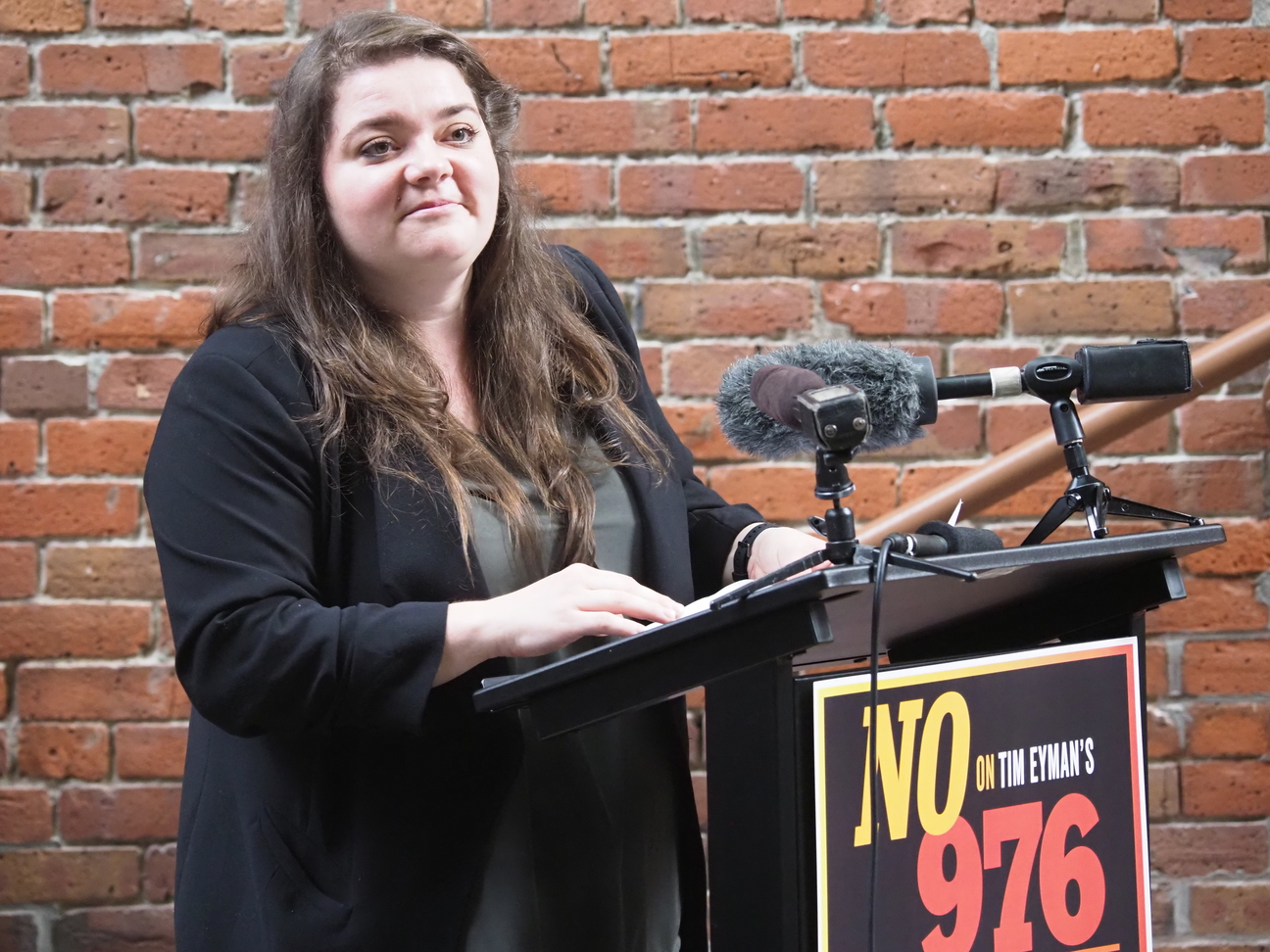Earlier this month, the Washington Supreme Court ruled Tim Eyman’s I‑976 unconstitutional. This was the right-wing saboteur’s latest con against voters, which promised cheap vehicle fees with no mention of any consequences.
The poorly conceived initiative was never likely to withstand judicial scrutiny; we have been pointing out the initiative’s glaring violations of Washington’s Constitution since Eyman qualified it to the ballot in 2018.
The decision striking down Initiative 976 in its entirety was welcomed by advocates for freedom of mobility. In a statement, Andrew Kiddle of 350 Seattle’s Transportation Team noted: “The Washington Supreme Court’s ruling provides much needed relief for transit programs all over our state, and gives a boost to healthy, climate-friendly, safe, and affordable transportation.”
A coalition of local governments, transit agencies, and progressive organizations went to court eleven months ago to put a stop to I‑976 after Keep Washington Rolling’s efforts to defeat the deceptively worded measure at the ballot fell short.
With I‑976 now kaput, progressives have an opportunity to go back on offense and positively influence transportation policy in Washington State.
While needed and welcome, the ruling against I‑976 is a defensive victory that needs to be built upon, NPI allies heavily involved in the I‑976 fight say.
The Transit Riders Union, Climate Solutions, and Washington ADAPT were all pleased with the Court’s ruling, but emphasized the need to resume making progress on funding multimodal transportation infrastructure.
“The court’s decision to overturn Eyman’s I‑976 is a win for transit riders and for everyone in Washington State who benefits from a functional transportation system — and that’s all of us,” said Katie Wilson, general secretary of the Transit Riders Union. “It’s also a win for democracy, affirming the rights of voters in cities and transportation districts around the state to make their own decisions about how to fund transportation improvements and public transit. Now it’s time to get to work. Fully funding an equitable, sustainable transportation system will be essential to our state’s economic recovery from the COVID-19 recession.”
“Overturning I‑976 is a win for anyone who rides transit and wants safer streets, hates potholes and congestion, and wants clean air and a healthy climate,” stated Vlad Gutman-Britten, Washington State Director for Climate Solutions. “The Washington Supreme Court restored voter-approved transit initiatives. Now that this sorry saga is behind us, it’s time to focus on investing in the sustainable, affordable, equitable transportation system Washington needs.”
“The Washington State disability community will benefit from the I‑976 decision if these funds go to more accessible public transit services,” said Janine Bertram of Washington ADAPT. “I‑976 would have left disabled transit riders around the state stranded. 30 years after the Americans with Disabilities Act was signed, we still have inadequate service and dysfunctional elevators. It’s long past time to make our transportation system accessible to all.”
The post-976 transportation policy landscape will be closely linked to the state’s recovery from the novel coronavirus pandemic.
Without a final ruling to go on, the Seattle City Council opted to go with a sales tax only transportation levy this year. The levy seeks to preserve funding for supplemental bus service and other transportation improvements.
Councilmembers are now discussing reauthorizing all or part of the city level vehicle fee that I‑976 unsuccessfully tried to repeal to augment the levy.
The Transportation Choices Coalition was also happy about the outcome of the case. It called the ruling “a win for transit,” but noted that the pandemic and the uncertainty leading up to the ruling have taken a toll on transit funding.
Washington presently relies on a mix of vehicle fees, gas taxes, tolls, ferry fares, and bus/train fares to fund its transportation system.
Although low income families can qualify for reduced bus and train fares, the system is not based on ability to pay, which is a problem.
Lack of stable funding results in service cuts, perpetuating social disruption and harming the environment by forcing people to drive.
Cuts take a long time to restore.
And once cuts get imposed, it gets harder to convince voters to fund a dilapidated transit system, as we’ve seen in Pierce County with Pierce Transit.
Unreliable sales tax funding has also been a pain point for Sound Transit. In the Pierce and South King subareas, the Great Recession caused a severe revenue shortfall which negatively impacted the agency’s plans to extend Link light rail to Federal Way. That project has now moved forward to the construction phase thanks to a significant infusion in federal money.
Other Sound Transit 2 projects are also humming along — light rail to Redmond is under construction and so is light rail to downtown Lynnwood.
But the agency’s ability to deliver its ST3 projects (approved in 2016) is imperiled due to the recession induced by the coronavirus pandemic. Voters authorized Sound Transit to bring light rail to Issaquah, Everett, and Tacoma; put a bus rapid transit line on I‑405; and expand Sounder and ST Express.
Voters in Sound Transit’s jurisdiction chose to stay the course last year by rejecting Initiative 976. That vote of confidence was good news for Sound Transit. However, the agency will likely need federal money to get its ST3 projects built and built on time. Federal money has been essential to building most of Sound Transit’s Link segments thus far and will be just as important to the ST3 lines.
Amtrak’s Cascades service has also been hurt by the pandemic.
Due to the border closure, it hasn’t run north of Seattle for months. Daily trips between King Street Station and Oregon are half of pre-pandemic levels. COVID concerns mean that many potential riders simply drive and take I‑5 instead.
To safeguard freedom of mobility for Washingtonians, the Legislature must act decisively to modernize our tax system and strengthen transportation funding.
Transit is infrastructure. Washingtonians today benefit from that investment through employment. Washingtonians tomorrow will thank us for providing them with more environmentally friendly options for getting around.

